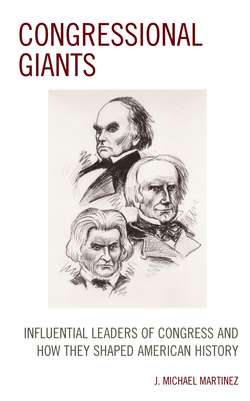Congressional Giants

Реклама. ООО «ЛитРес», ИНН: 7719571260.
Оглавление
J. Michael Martinez. Congressional Giants
Отрывок из книги
Congressional Giants
Influential Leaders of Congress and How They Shaped American History
.....
The Seventh of March speech, as it came to be known, destroyed Webster’s political support in New England. The famous writer and philosopher Ralph Waldo Emerson typified the response. He was aghast. “ ‘Liberty! Liberty!’ Pho! Let Mr. Webster, for decency’s sake, shut his lips for once and forever on this word. The word ‘Liberty’ in the mouth of Mr. Webster sounds like the word ‘love’ in the mouth of a courtesan.” Theodore Parker, a prominent abolitionist, exclaimed that “no living man has done so much to debauch the conscience of the nation.” Horace Mann, an influential educator, denounced Webster’s proposal as a “vile catastrophe.” The great orator had once walked among the gods, but his stock had fallen. He now consorted among “harlots and leeches.” Senator William H. Seward characterized Webster as a “traitor to the cause of freedom.” Future Massachusetts Senator Charles Sumner, a vocal opponent of slavery, added Webster’s name to the “dark list of apostates.” Sumner believed that “Mr. Webster’s elaborate treason has done more than anything else to break down the North.”81
Outside of New England, many Americans viewed Webster as a hero. He had known that the speech probably would destroy his political career, but he spoke up, anyway. The National Intelligencer, an influential newspaper in Washington, DC, hailed the senator’s speech, arguing that it would add “fresh lustre to the fame of the great orator” owing to Webster’s “truly national and patriotic spirit.” Webster’s longtime adversary, Isaac Hill, a newspaper editor who previously served as a U.S. senator and governor of New Hampshire, proclaimed the speech “the crowning act” of a great man’s life. In his book, Profiles in Courage, written more than a century after the speech, Senator John F. Kennedy wrote movingly of the man who, “to the end . . . had been true to the Union, and to his greatest act of courageous principle.”82
.....